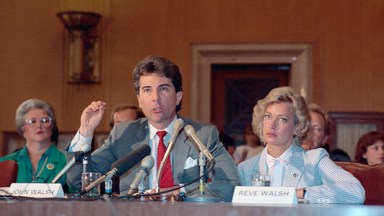
John Walsh is a name that resonates deeply with many Americans, evoking a mix of admiration and sorrow. His journey into the spotlight began with an unimaginable tragedy—the abduction and murder of his 6-year-old son, Adam Walsh, in 1981. This heartbreaking event not only shattered the Walsh family but also ignited a passionate crusade against crime and child exploitation. John's transformation from a grieving father to a prominent advocate for missing children exemplifies the resilience of the human spirit.
As the host of America’s Most Wanted, John dedicated his life to helping bring hundreds of fugitives to justice, turning his personal suffering into a powerful mission to protect other families from experiencing similar pain. His story is not just about loss; it’s a testament to his relentless pursuit of justice and the impact of advocacy in shaping policies related to child protection in America.
This article explores the tragic events surrounding Adam Walsh's disappearance, the subsequent investigation, and the profound legacy left by John and his wife, Revé. It delves into how their suffering transformed into a relentless drive to advocate for missing and exploited children, ultimately leading to significant legislative changes and the creation of vital organizations aimed at protecting children nationwide.
Table of Contents
- Biography of John Walsh
- The Disappearance of Adam Walsh
- Closure of the Case
- Aftermath and Advocacy
- The Birth of America's Most Wanted
Biography of John Walsh
| Detail | Information |
|---|---|
| Name | John Walsh |
| Date of Birth | December 26, 1945 |
| Occupation | Television Personality, Criminal Justice Advocate |
| Spouse | Revé Walsh |
| Children | Adam Walsh (deceased), Meghan Walsh, Callahan Walsh, Hayden Walsh |
| Notable Work | Host of America’s Most Wanted |
The Disappearance of Adam Walsh
On July 27, 1981, tragedy struck the Walsh family when 6-year-old Adam went missing from a Sears store in Hollywood, Florida. His mother, Revé Walsh, briefly left him in the toy section while she browsed another part of the store. This brief moment of distraction led to a massive search that would captivate the nation.
Despite extensive efforts, Adam's disappearance led to a heartbreaking discovery weeks later when his severed head was found in a drainage ditch, but the rest of his body was never located. This shocking crime not only devastated John and Revé but also highlighted serious flaws in child safety and law enforcement protocols regarding missing children.
Closure of the Case
The investigation into Adam's murder spanned several years, with various suspects emerging, including infamous serial killer Jeffrey Dahmer and the main suspect, Ottis Toole. Toole, who had a long history of violent crime, confessed to Adam's murder, but later recanted his confession. It wasn't until 2008 that the Hollywood Police Department officially closed the case, naming Toole as Adam's murderer.
For John Walsh, learning the truth about his son's murder brought a painful sense of closure. In a press conference, he expressed the anguish of not knowing, but also relief in finally having answers. This journey through grief would soon transform into a mission for change and advocacy.
Aftermath and Advocacy
After the tragedy of losing Adam, John and Revé became fierce advocates for child safety and rights. They founded the National Center for Missing and Exploited Children, aiming to provide resources and support for families affected by similar tragedies. Their commitment was driven by the desire to ensure that Adam's death would not be in vain.
Through their advocacy, they played a crucial role in pushing for legislative changes, including the Adam Walsh Child Protection and Safety Act, which established a national database of sex offenders and improved law enforcement's ability to address crimes against children.
The Birth of America's Most Wanted
In 1988, John launched America’s Most Wanted as a direct response to his family's tragedy, aiming to help find missing children and capture fugitives. The show became a significant platform for raising public awareness about crime and missing persons, leading to over 1,000 arrests during its run.
John’s conditions for the show included not sensationalizing child victims and ensuring that real people—not police—staffed the hotline. This unique approach, rooted in empathy and understanding of victims' families, set the show apart and helped establish its credibility.



